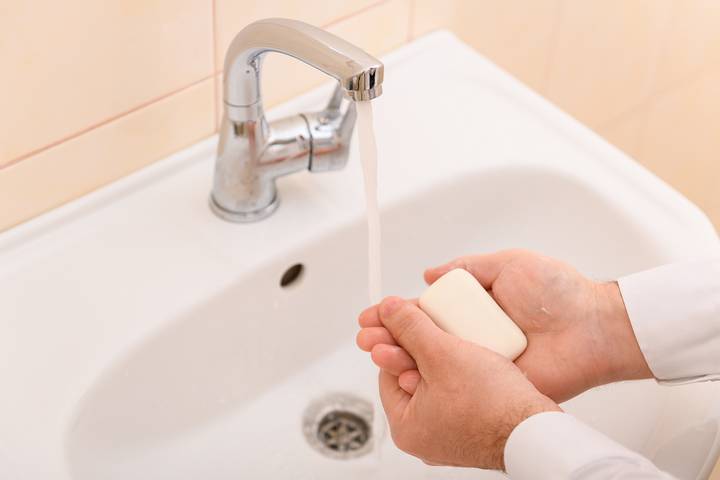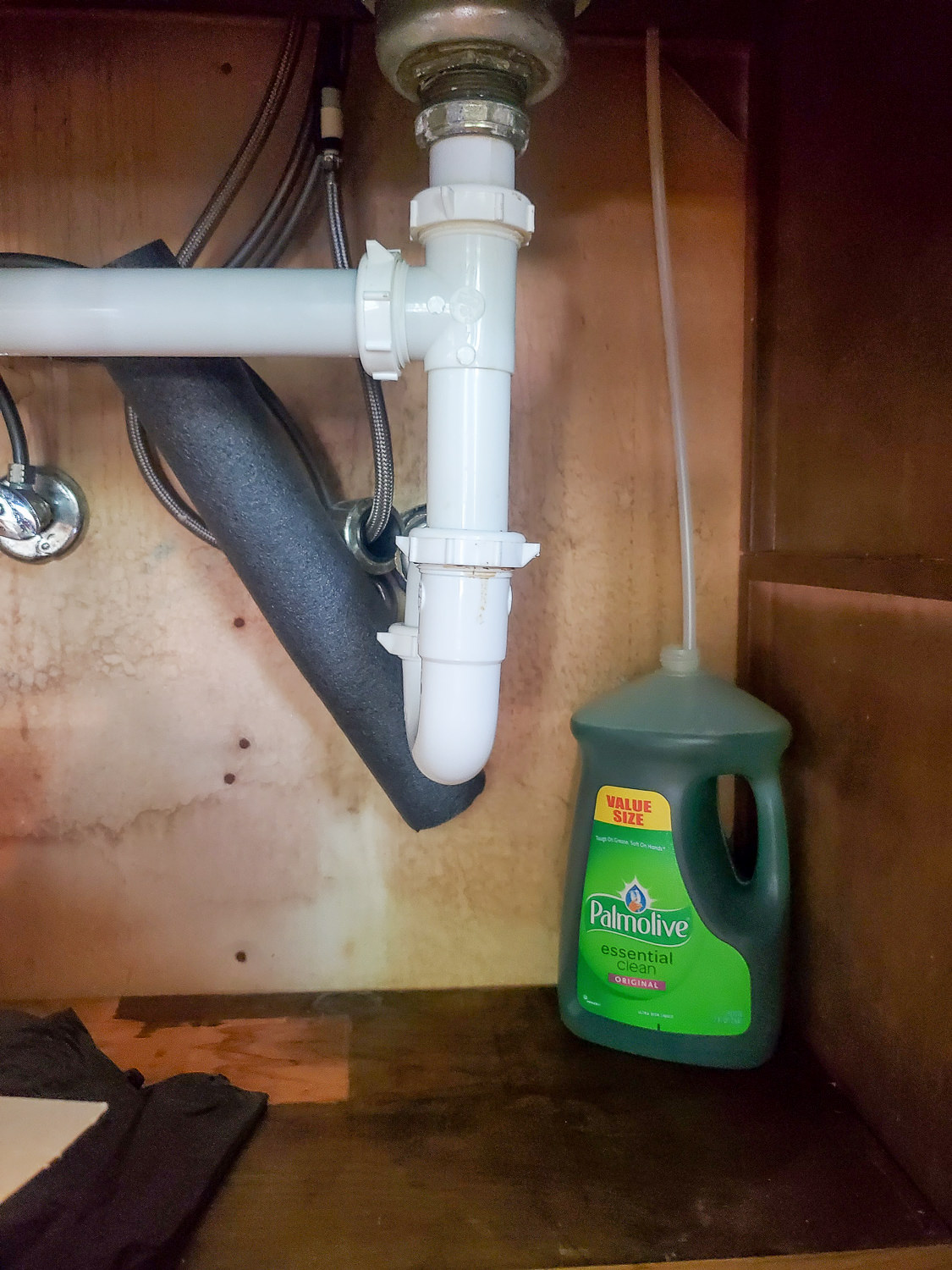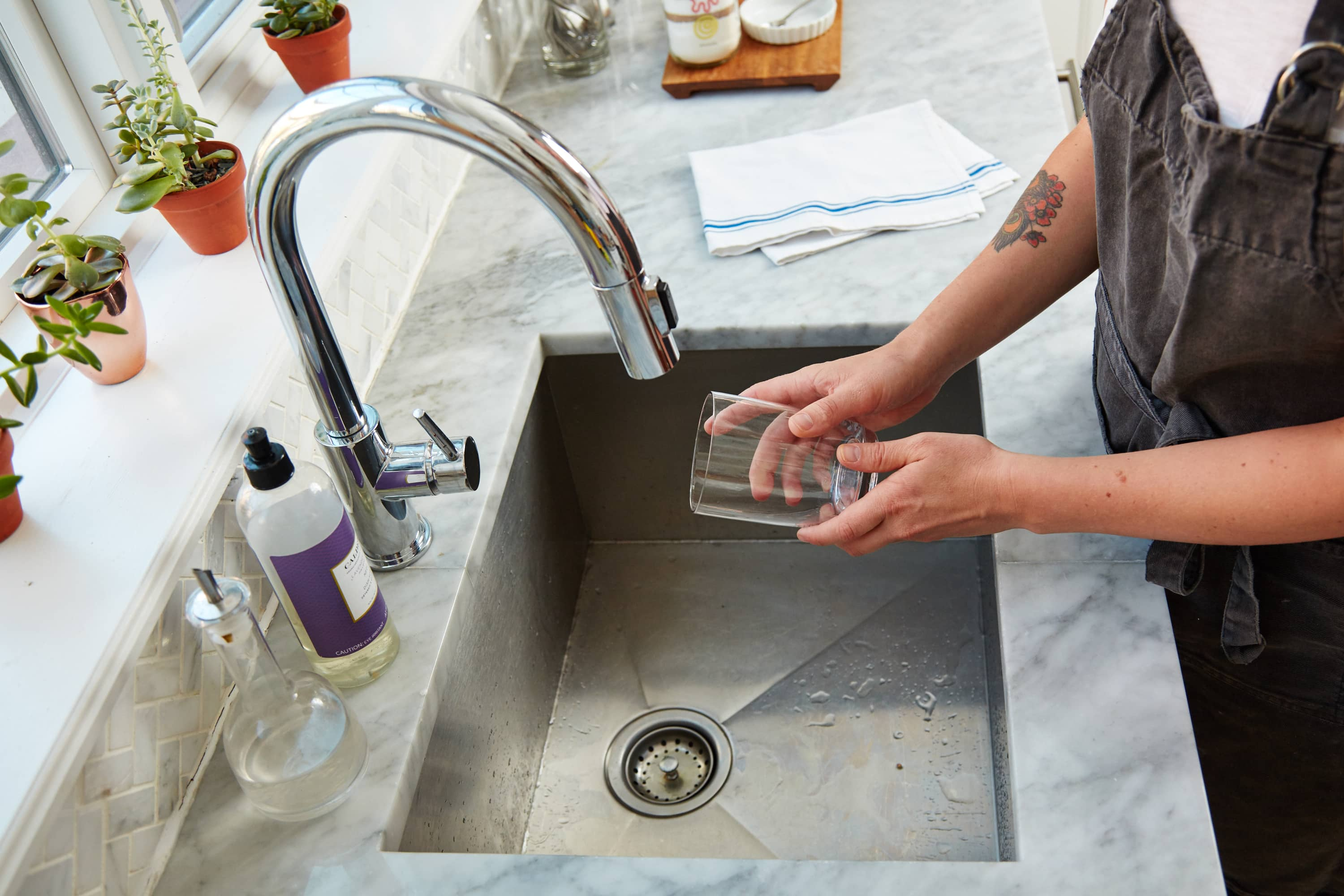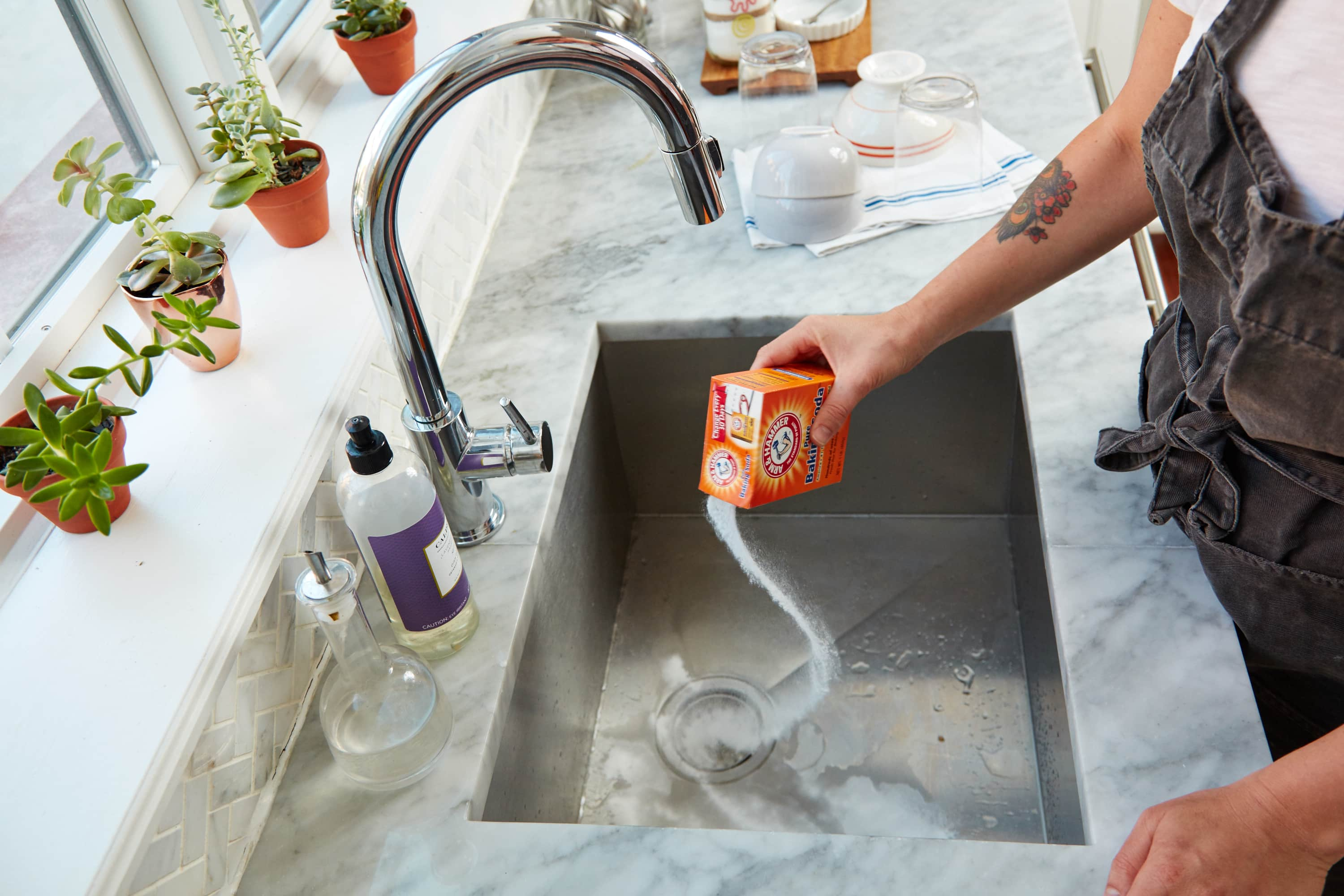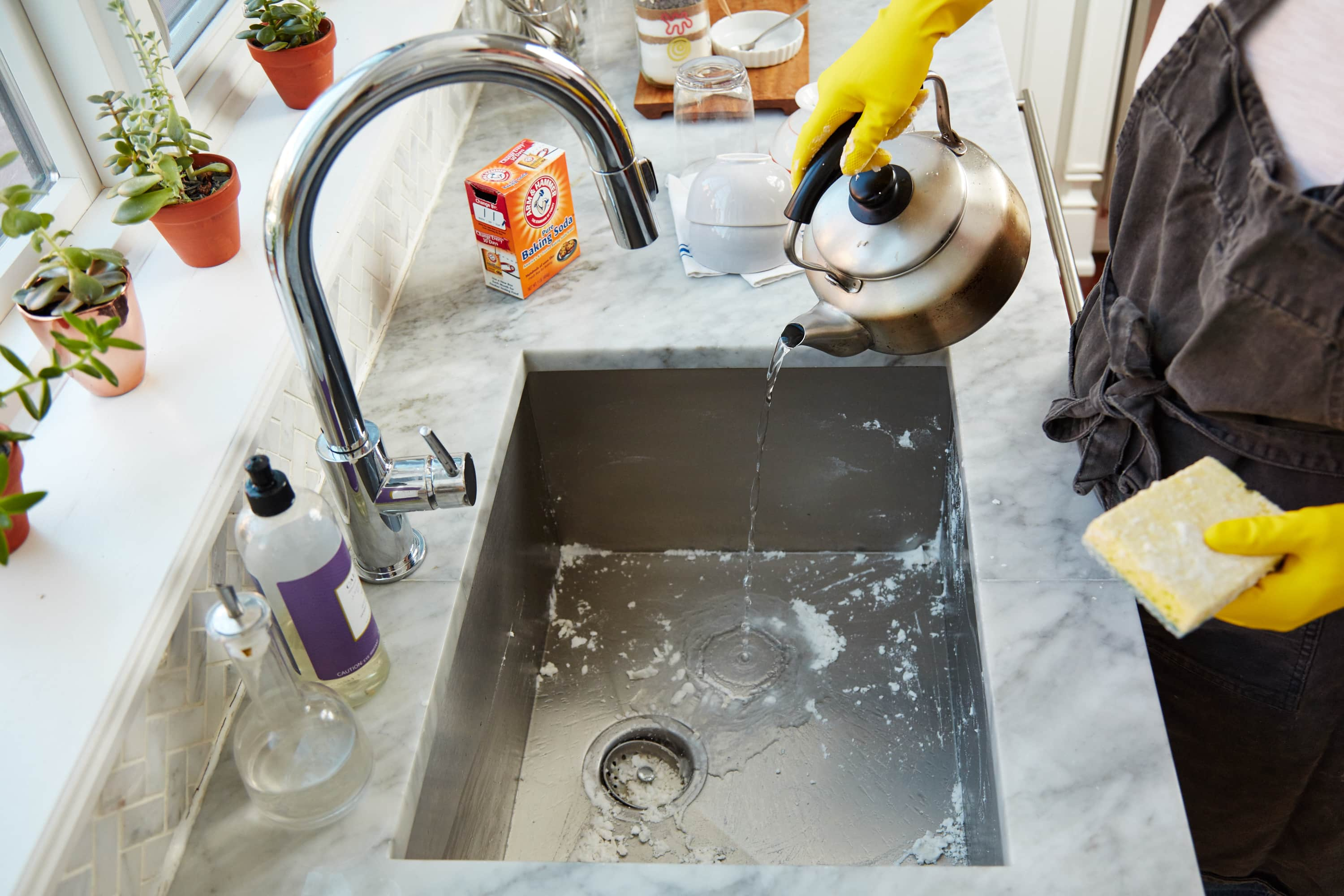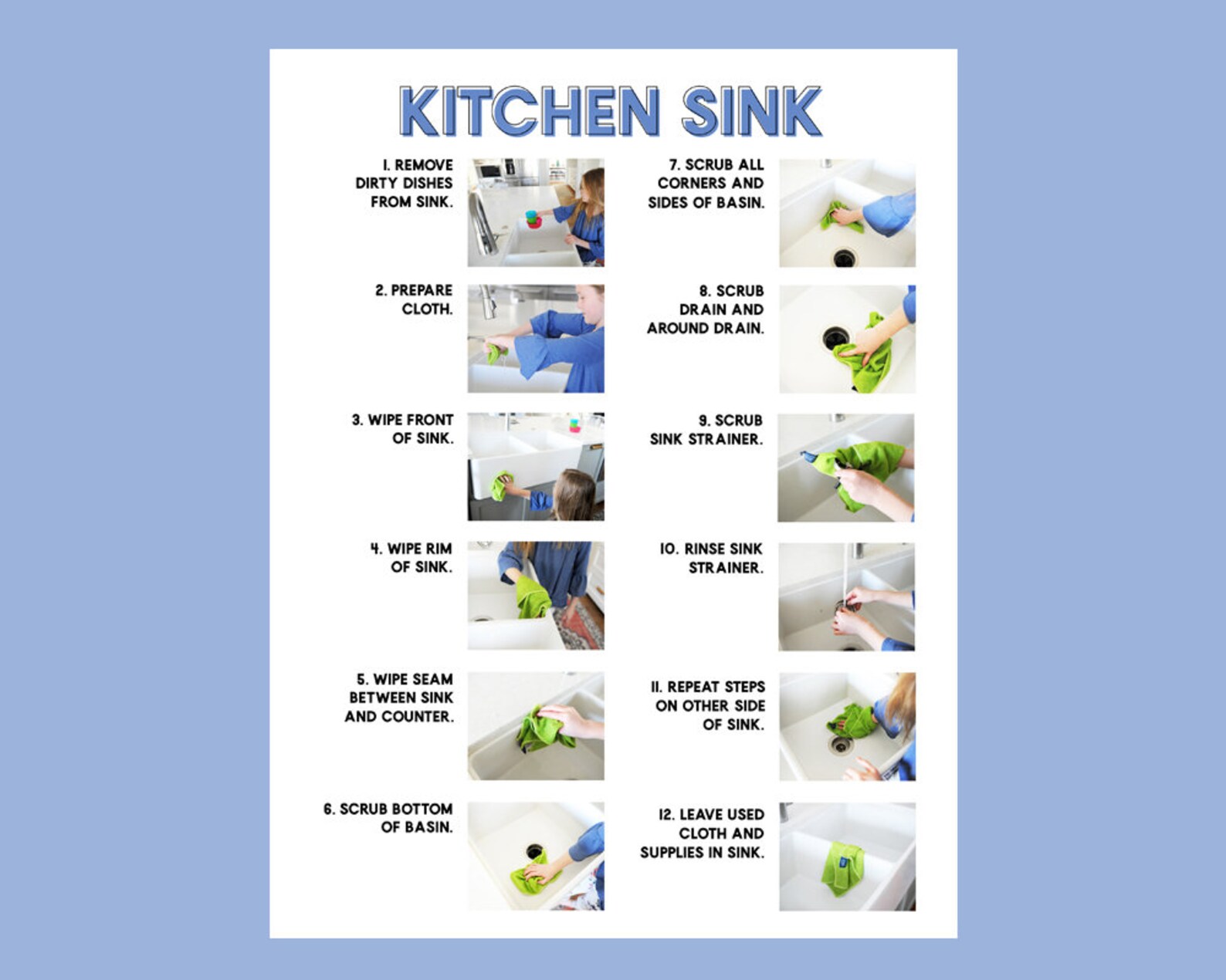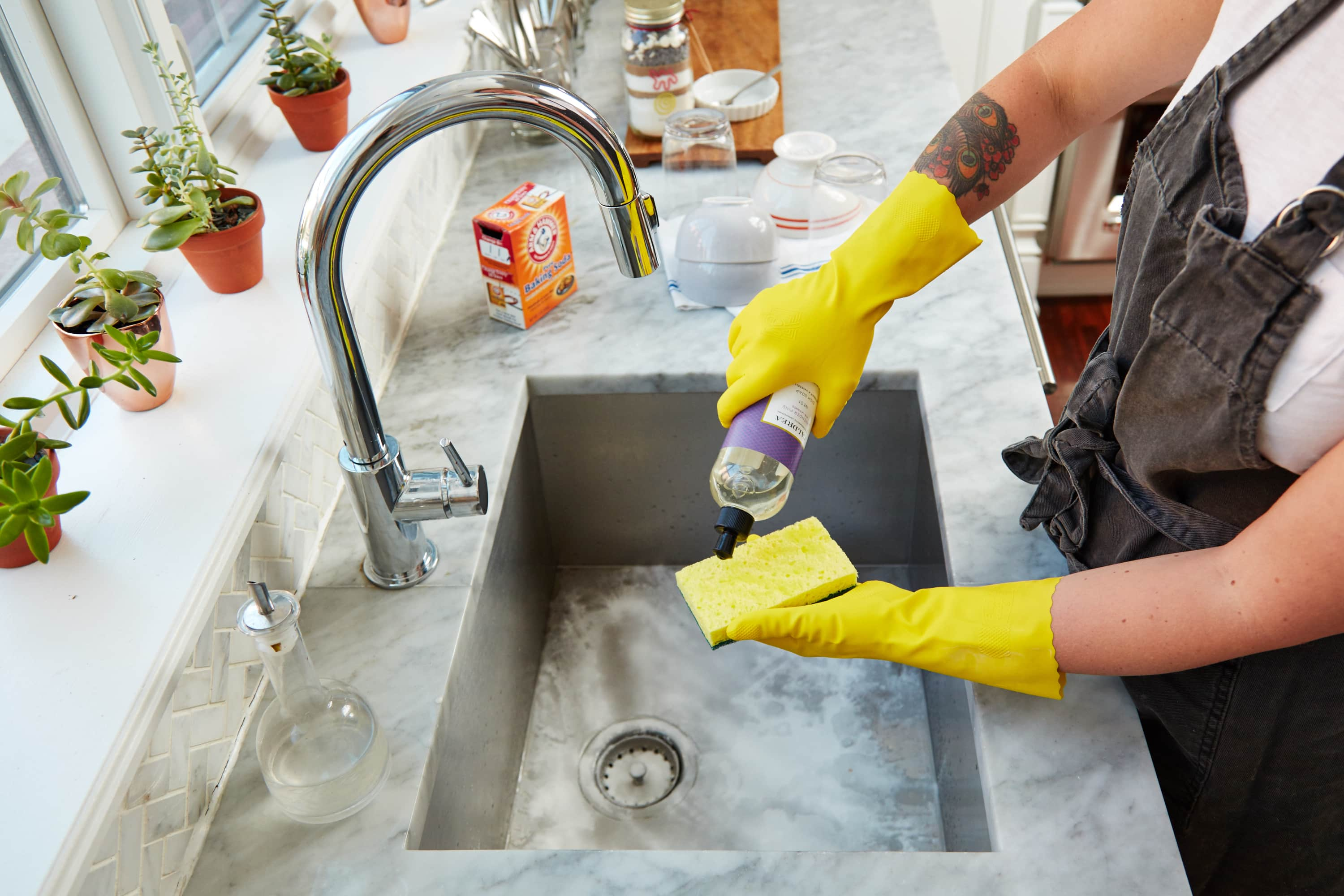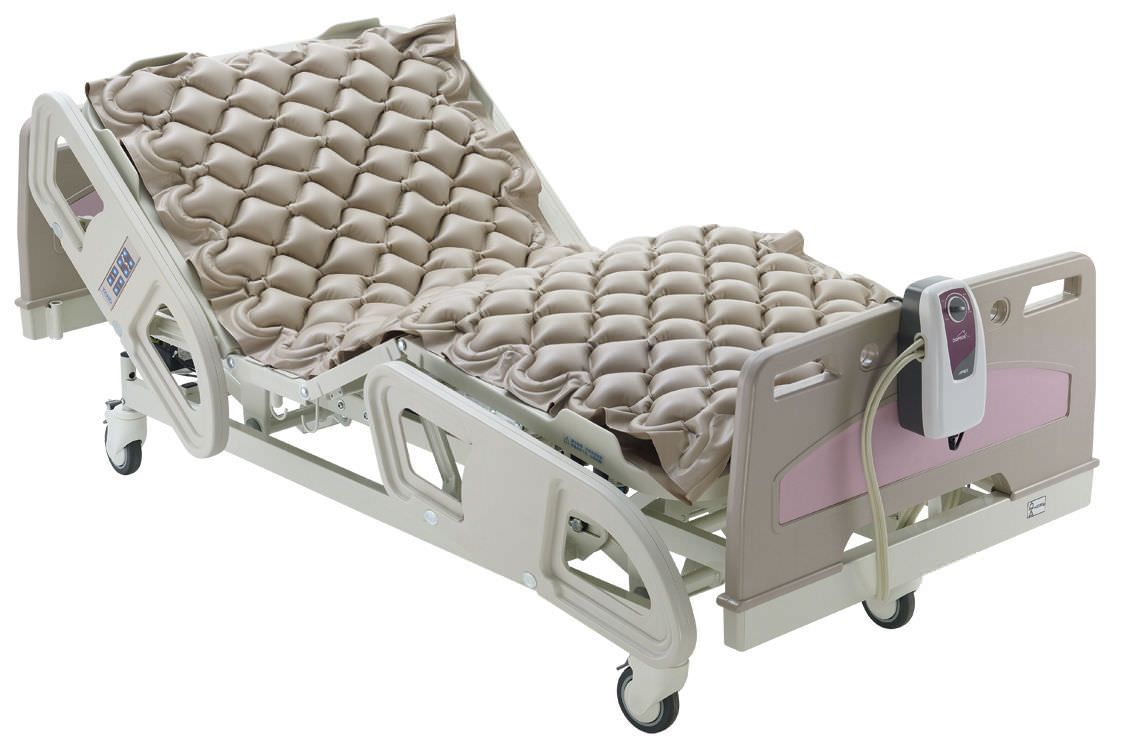Soap scum can be a nightmare to deal with, especially in your kitchen sink. The build-up of soap, dirt, and grime can make your sink look dirty and unhygienic. Fortunately, there are several effective methods for removing soap scum and keeping your kitchen sink clean and shiny. Here are the top 10 ways to get rid of soap scum in a kitchen sink:How to Remove Soap Scum from a Kitchen Sink
White vinegar is a natural and effective cleaner that can help dissolve soap scum in your kitchen sink. Mix equal parts white vinegar and water in a spray bottle and spray it onto the affected areas. Let it sit for a few minutes, then scrub with a sponge or brush. Rinse with water and dry with a clean cloth.1. Use White Vinegar
Baking soda is another natural remedy for removing soap scum in a kitchen sink. Make a paste by mixing baking soda with a small amount of water. Apply the paste to the soap scum and let it sit for 15-20 minutes. Scrub with a sponge or brush and rinse with water.2. Try Baking Soda
Lemon juice is a natural acid that can help break down soap scum in your kitchen sink. Cut a lemon in half and rub it directly onto the affected areas. Let it sit for a few minutes, then scrub with a sponge or brush. Rinse with water and dry with a clean cloth.3. Use Lemon Juice
Believe it or not, dish soap can be an effective cleaner for removing soap scum in a kitchen sink. Simply apply a small amount of dish soap to a sponge or brush and scrub the affected areas. Rinse with water and dry with a clean cloth.4. Use Dish Soap
Magic erasers are great for removing tough stains and grime, including soap scum in your kitchen sink. Wet the magic eraser and squeeze out any excess water. Scrub the affected areas and rinse with water. These can be especially helpful for hard-to-reach places in your sink.5. Try a Magic Eraser
If you have a steam cleaner, it can be a great tool for removing soap scum in your kitchen sink. The high temperature of the steam can help dissolve the soap scum and make it easier to wipe away. Make sure to follow the instructions for your specific steam cleaner.6. Use a Steam Cleaner
Hydrogen peroxide is a natural cleaner that can help remove soap scum in your kitchen sink. Mix equal parts hydrogen peroxide and water in a spray bottle and spray it onto the affected areas. Let it sit for a few minutes, then scrub with a sponge or brush. Rinse with water and dry with a clean cloth.7. Try Hydrogen Peroxide
If natural remedies are not effective, you can try using a commercial cleaner specifically designed for removing soap scum. Make sure to read and follow the instructions carefully, and wear gloves to protect your hands.8. Use a Commercial Cleaner
Prevention is key when it comes to soap scum in your kitchen sink. After each use, make sure to wipe down the sink with a clean cloth. This will help prevent soap scum from building up and make it easier to clean in the future.9. Prevent Soap Scum Buildup
The woes of soap scum in the kitchen sink

Why it's a common problem
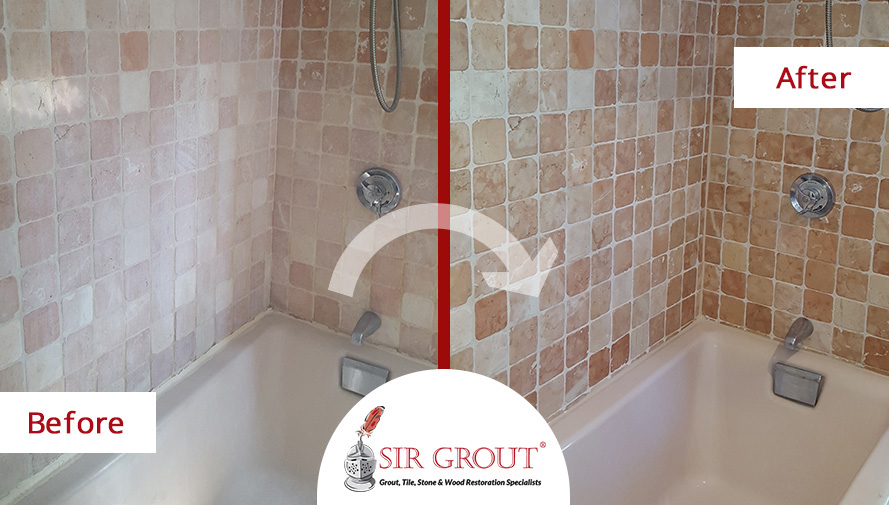 Soap scum is a common issue that many homeowners face in their kitchen sinks. This stubborn residue is caused by a mixture of soap, hard water deposits, and dirt that accumulates over time. It not only looks unsightly, but it also poses a potential health hazard as it can harbor bacteria and other germs. Soap scum can also clog drains and pipes, resulting in a foul odor and potential plumbing issues. With all these negative effects, it's no wonder that homeowners are constantly looking for ways to combat this persistent problem.
Soap scum is a common issue that many homeowners face in their kitchen sinks. This stubborn residue is caused by a mixture of soap, hard water deposits, and dirt that accumulates over time. It not only looks unsightly, but it also poses a potential health hazard as it can harbor bacteria and other germs. Soap scum can also clog drains and pipes, resulting in a foul odor and potential plumbing issues. With all these negative effects, it's no wonder that homeowners are constantly looking for ways to combat this persistent problem.
The impact on kitchen design
 Aside from its health and functional implications, soap scum can also have a significant impact on the overall design of your kitchen. The accumulation of soap scum can cause discoloration and damage to sinks, faucets, and other fixtures, making them look dull and unattractive. This can be especially problematic if you have invested in high-end or designer kitchen fixtures that are meant to be the focal point of your kitchen. Soap scum can also make a kitchen look unkempt and unhygienic, which can be a major turn-off for guests or potential buyers if you ever decide to sell your home. As such, it's important to address soap scum in order to maintain a clean and visually appealing kitchen design.
Aside from its health and functional implications, soap scum can also have a significant impact on the overall design of your kitchen. The accumulation of soap scum can cause discoloration and damage to sinks, faucets, and other fixtures, making them look dull and unattractive. This can be especially problematic if you have invested in high-end or designer kitchen fixtures that are meant to be the focal point of your kitchen. Soap scum can also make a kitchen look unkempt and unhygienic, which can be a major turn-off for guests or potential buyers if you ever decide to sell your home. As such, it's important to address soap scum in order to maintain a clean and visually appealing kitchen design.
How to prevent and remove soap scum
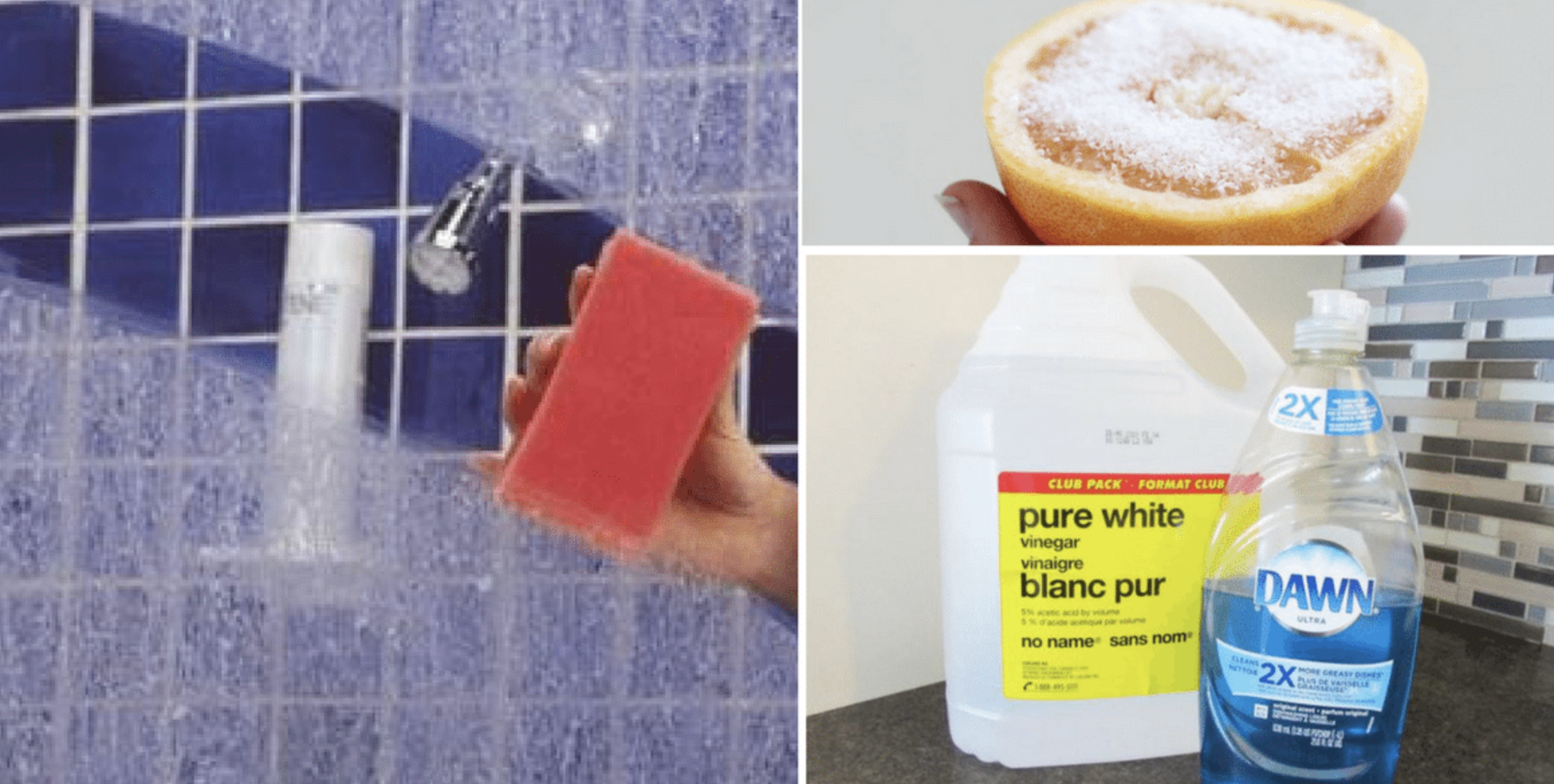 The key to preventing and removing soap scum in the kitchen sink is regular maintenance and cleaning. After each use, make sure to rinse out any soap residue and wipe down the sink with a mild cleaner. This will prevent soap scum from building up over time. You can also use a mixture of vinegar and water to break down and dissolve soap scum. For tougher stains, a soft-bristled brush or sponge can be used to gently scrub away the scum. It's important to avoid harsh chemicals or abrasive cleaning tools as they can damage the surface of your sink.
In addition to regular cleaning, investing in a water softener or using distilled water can also help prevent soap scum buildup. These methods will reduce the amount of hard water deposits that contribute to soap scum formation. It's also a good idea to regularly check and clean your sink's drain and pipes to prevent any potential clogs.
With these tips in mind, you can keep your kitchen sink free from soap scum and maintain a clean and visually appealing kitchen design. Don't let soap scum take over your kitchen and take the necessary steps to keep it at bay. Trust us, your kitchen (and your guests) will thank you.
The key to preventing and removing soap scum in the kitchen sink is regular maintenance and cleaning. After each use, make sure to rinse out any soap residue and wipe down the sink with a mild cleaner. This will prevent soap scum from building up over time. You can also use a mixture of vinegar and water to break down and dissolve soap scum. For tougher stains, a soft-bristled brush or sponge can be used to gently scrub away the scum. It's important to avoid harsh chemicals or abrasive cleaning tools as they can damage the surface of your sink.
In addition to regular cleaning, investing in a water softener or using distilled water can also help prevent soap scum buildup. These methods will reduce the amount of hard water deposits that contribute to soap scum formation. It's also a good idea to regularly check and clean your sink's drain and pipes to prevent any potential clogs.
With these tips in mind, you can keep your kitchen sink free from soap scum and maintain a clean and visually appealing kitchen design. Don't let soap scum take over your kitchen and take the necessary steps to keep it at bay. Trust us, your kitchen (and your guests) will thank you.


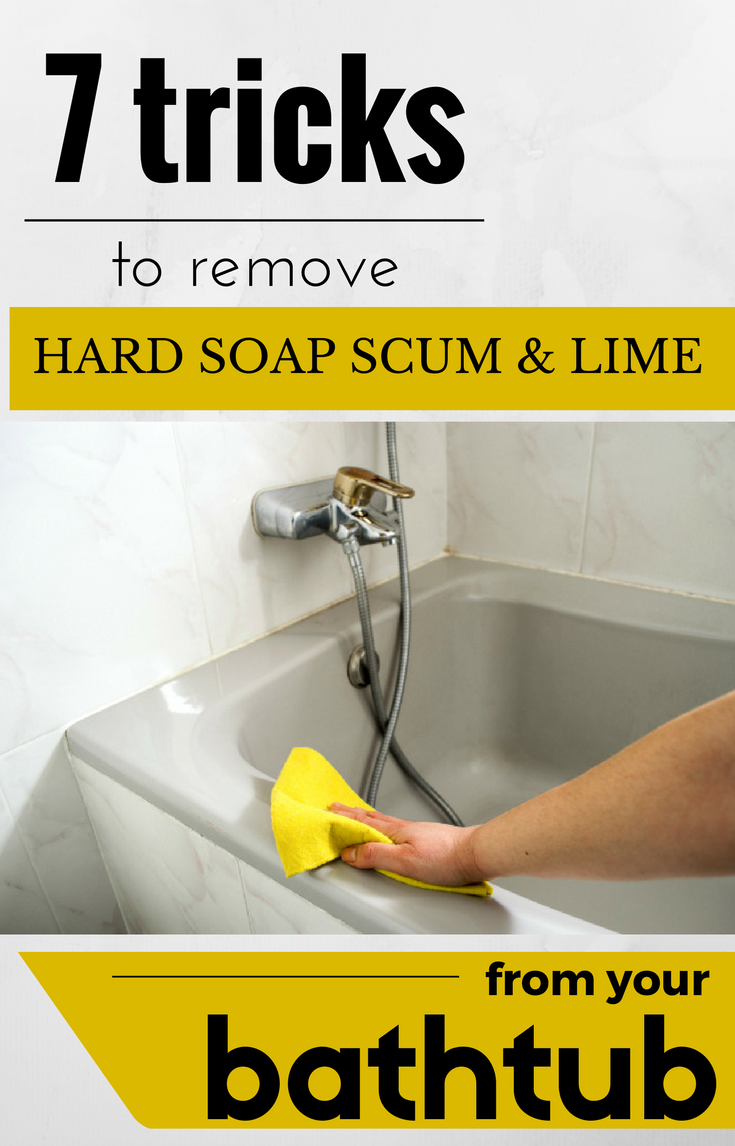

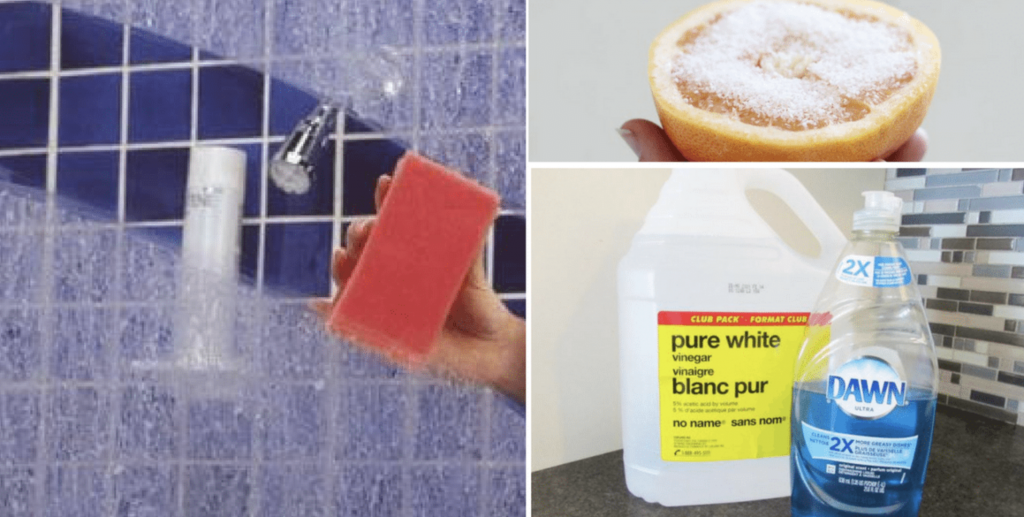


/how-to-remove-soap-scum-4137657-FINAL-5b5716f9c9e77c00374f33c0.png)

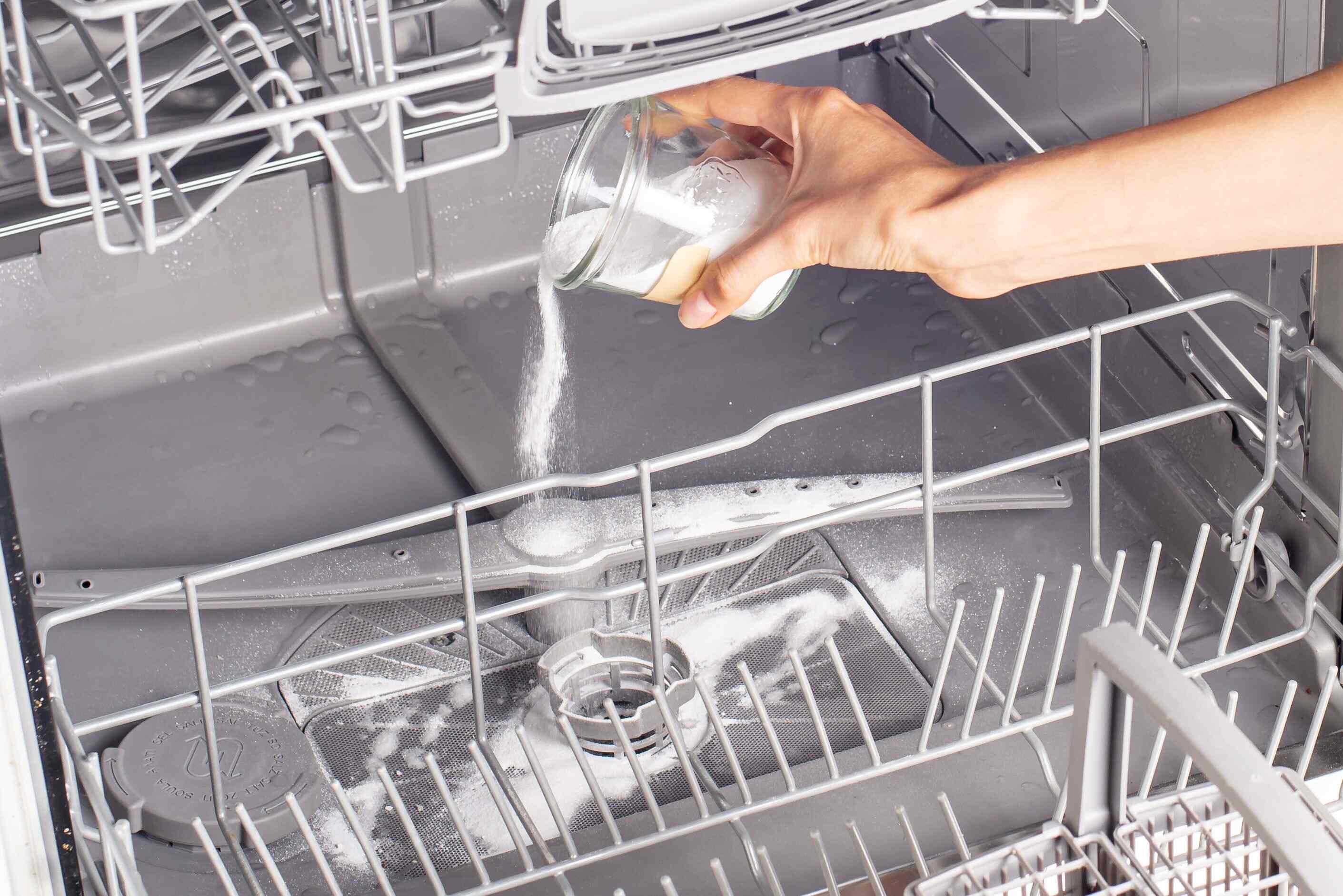
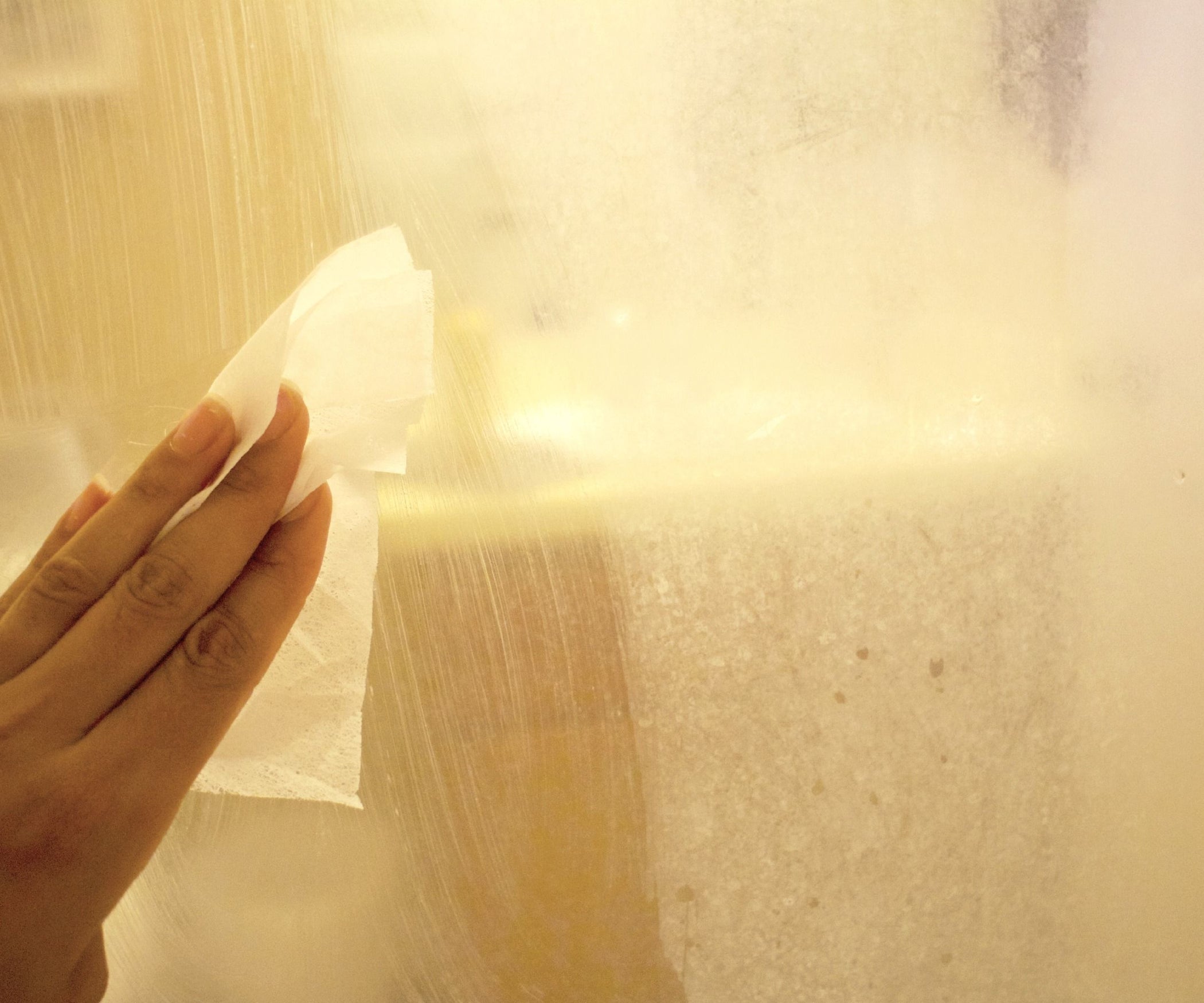
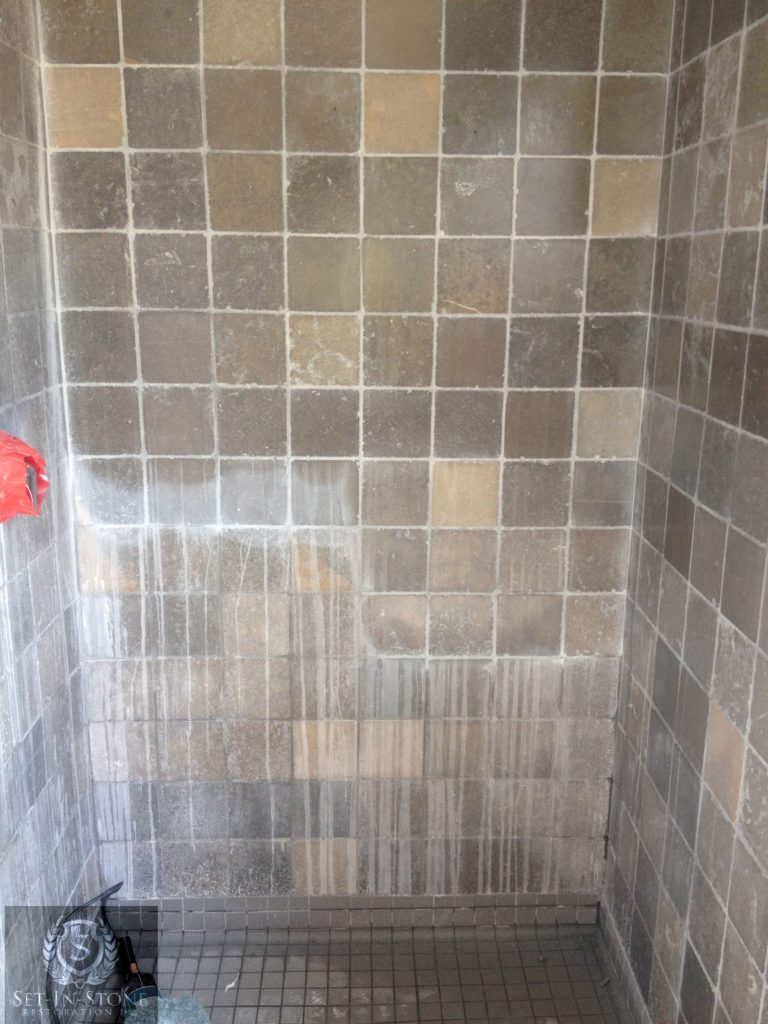



:max_bytes(150000):strip_icc()/how-to-remove-soap-scum-4137657-04-42d6ecd324764cffac1c24f9c849b828.jpg)



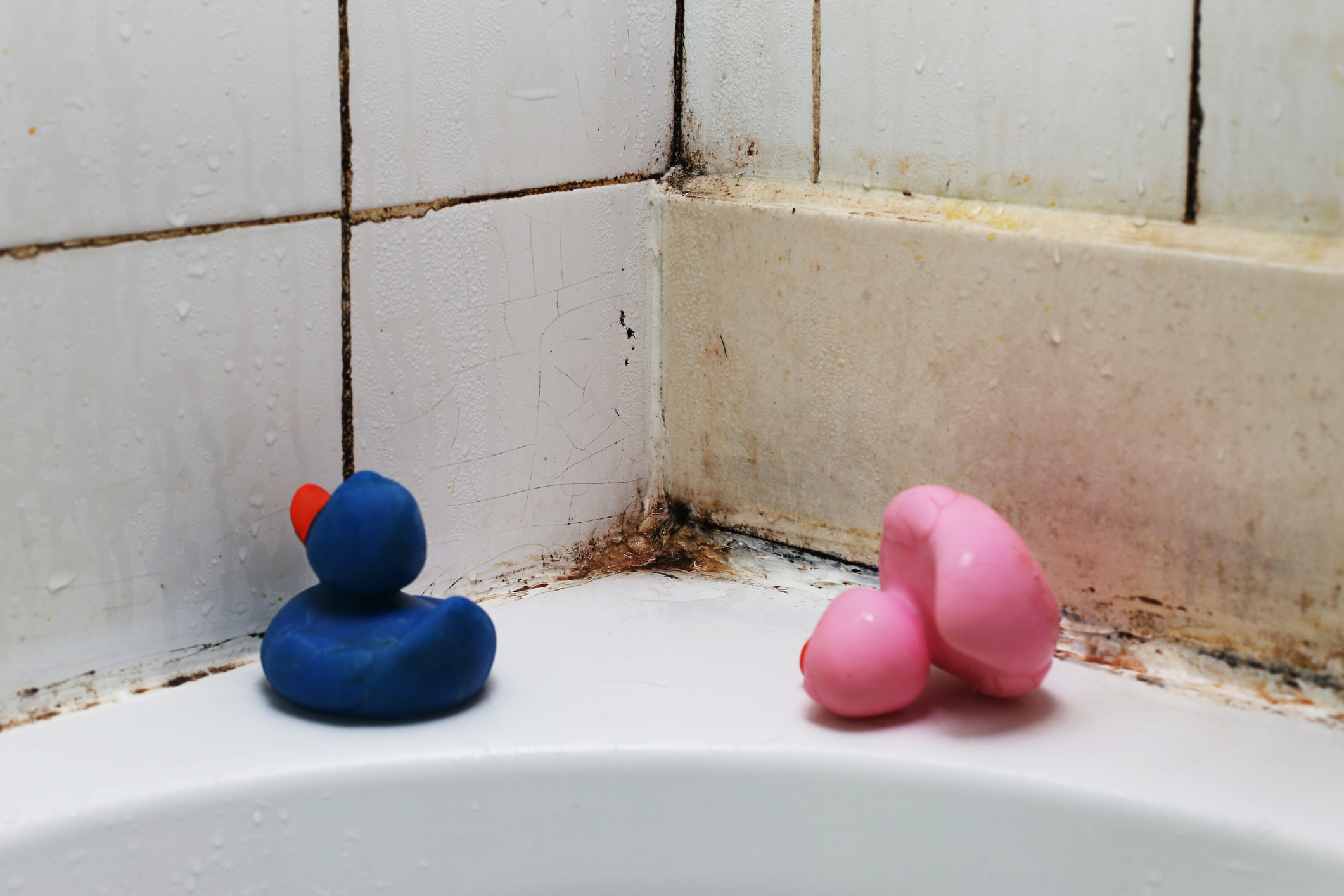


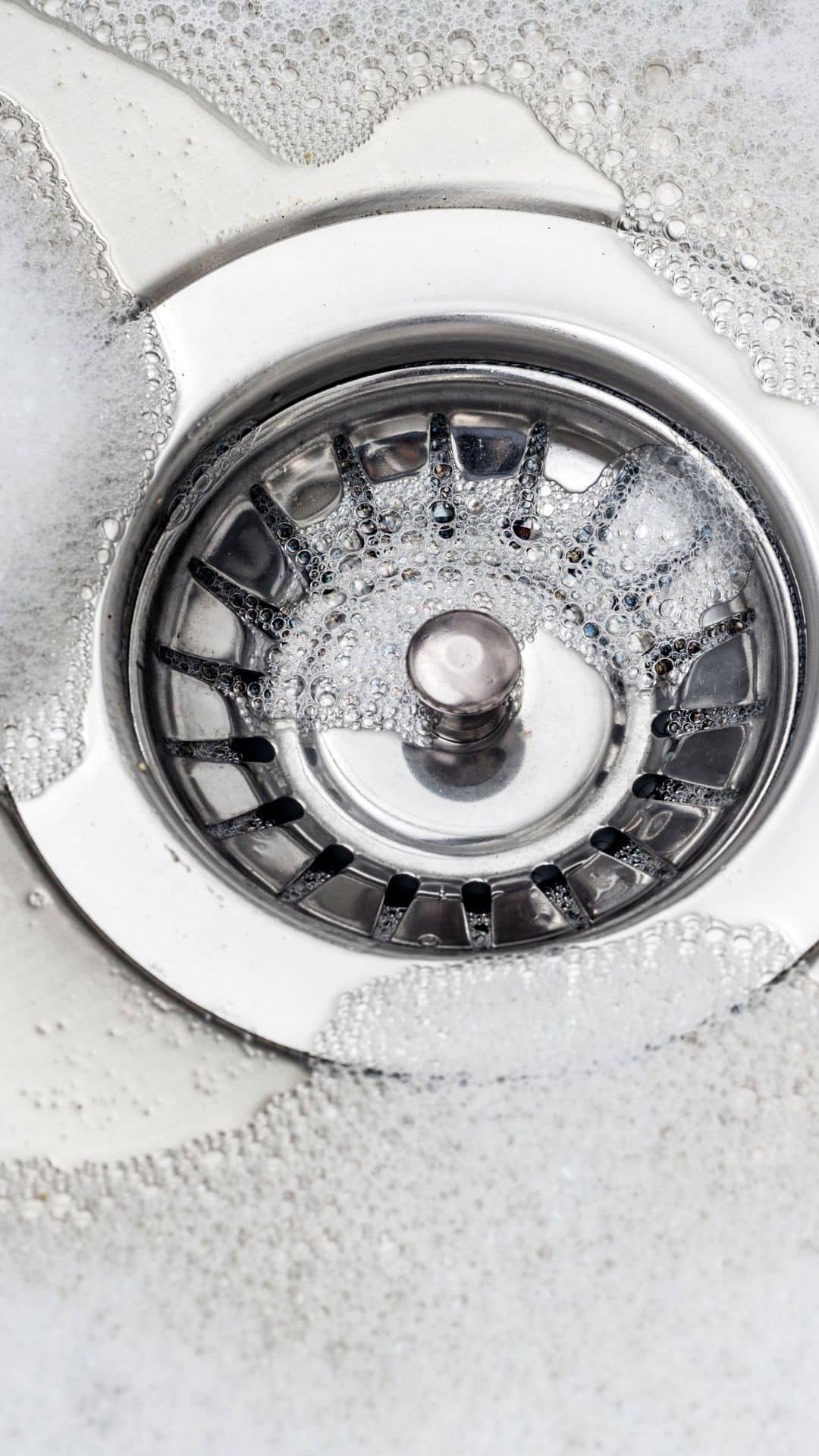


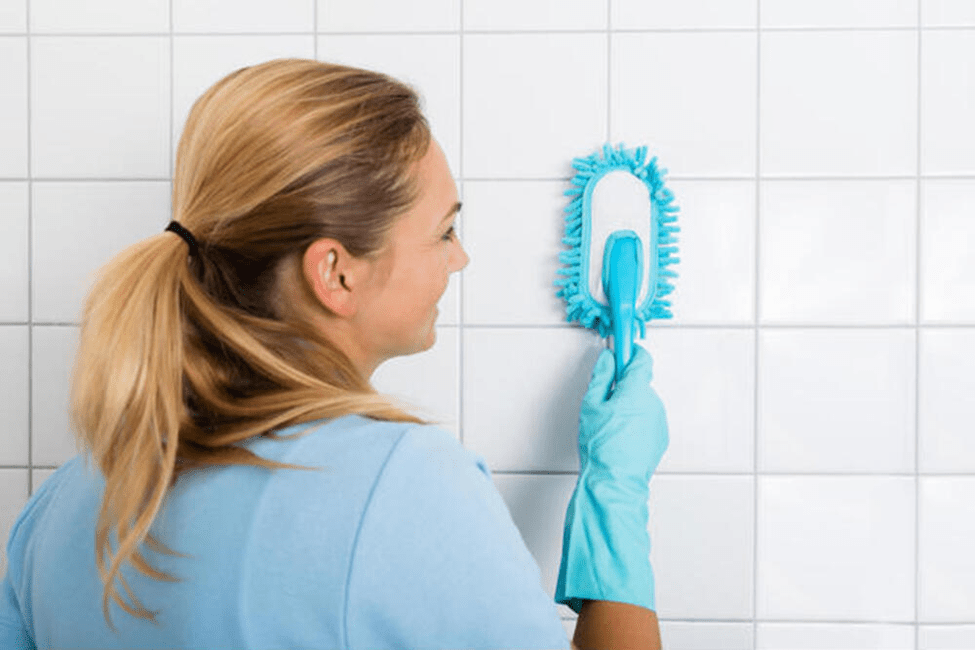

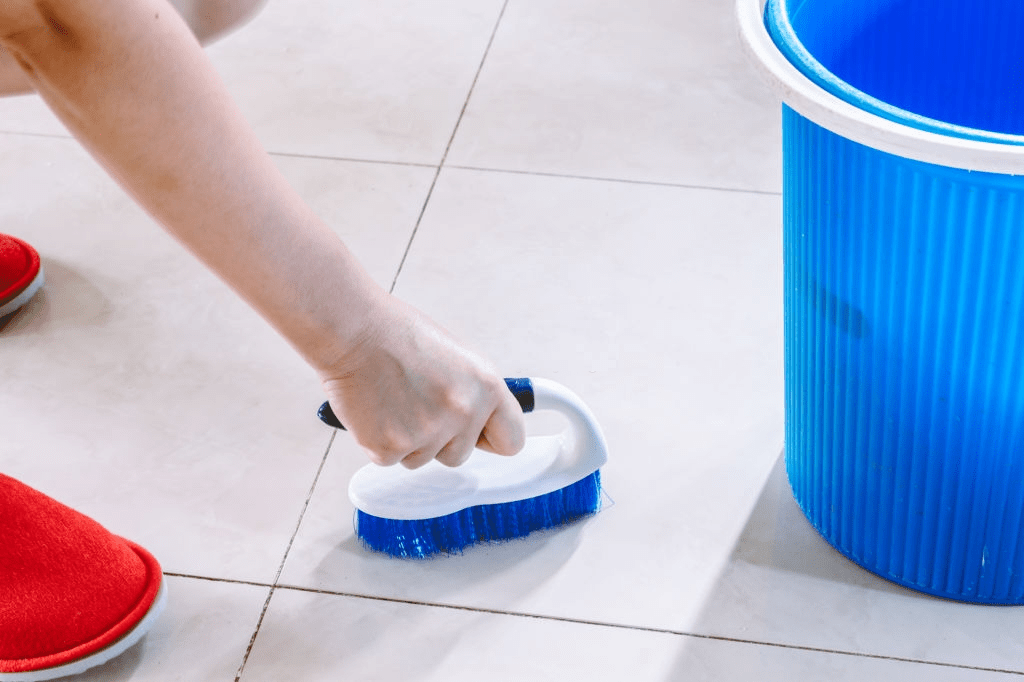

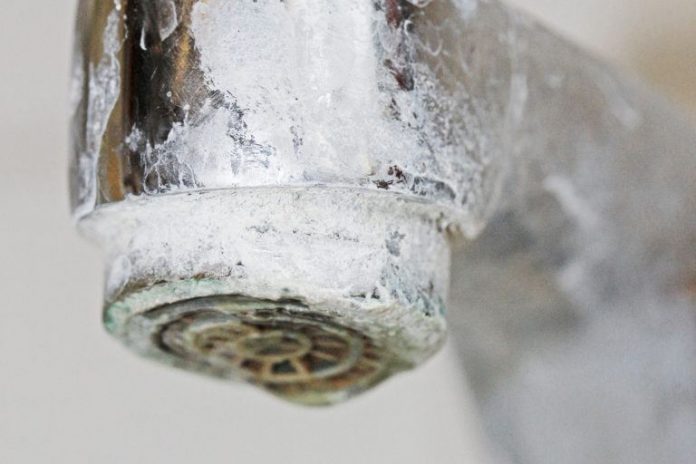











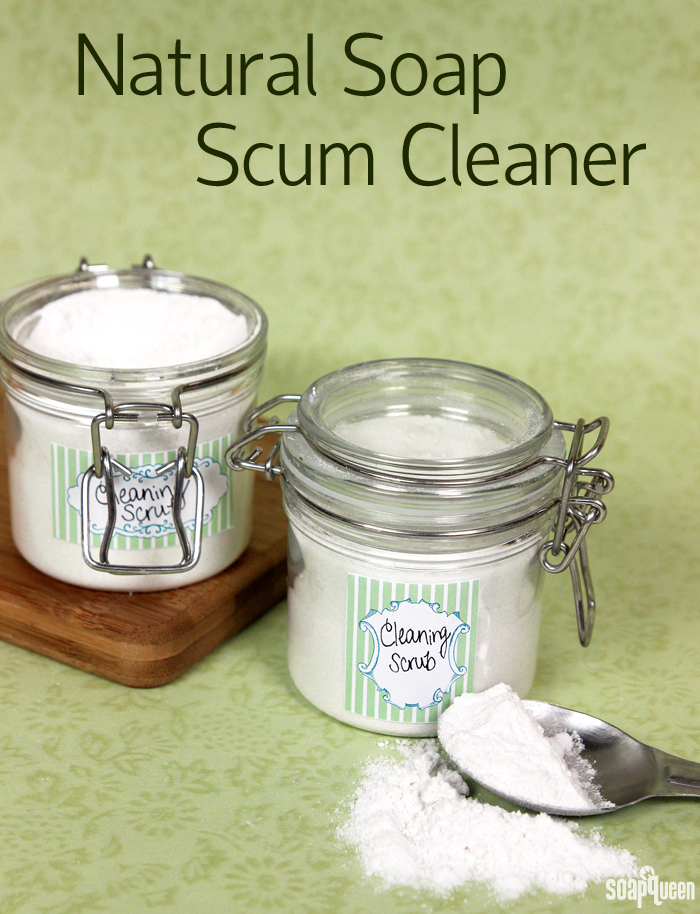



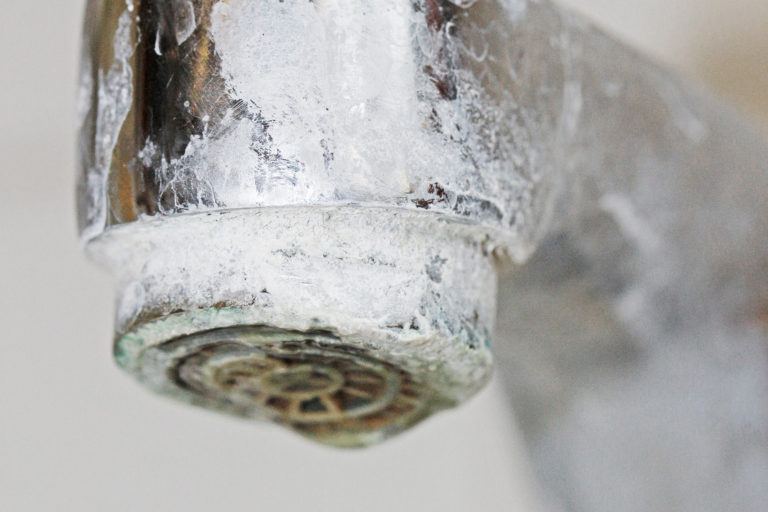

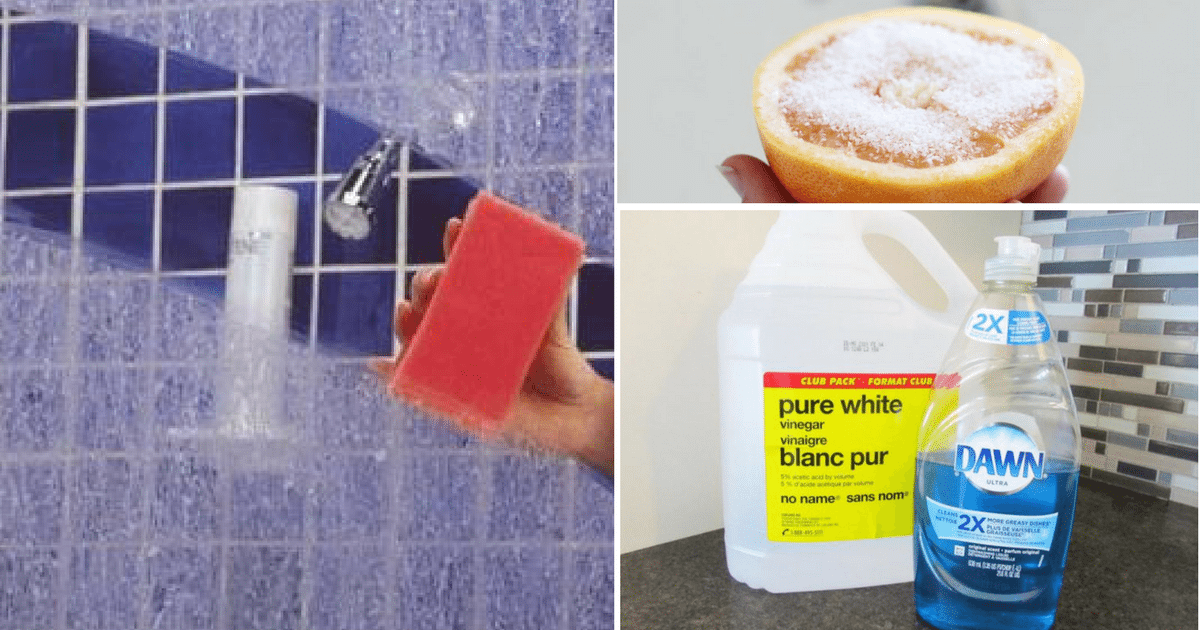
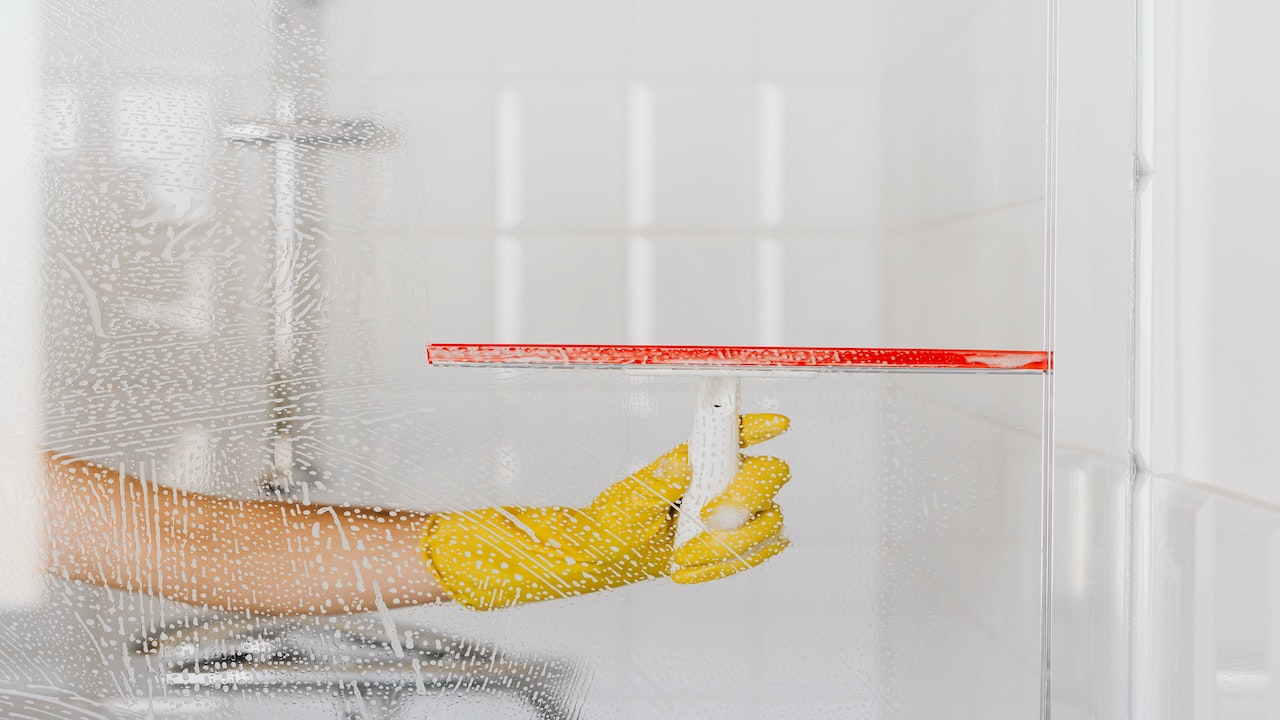
:max_bytes(150000):strip_icc()/how-to-remove-soap-scum-4137657-06-711be61143d9454ea5dd61b23c8ad1c6.jpg)






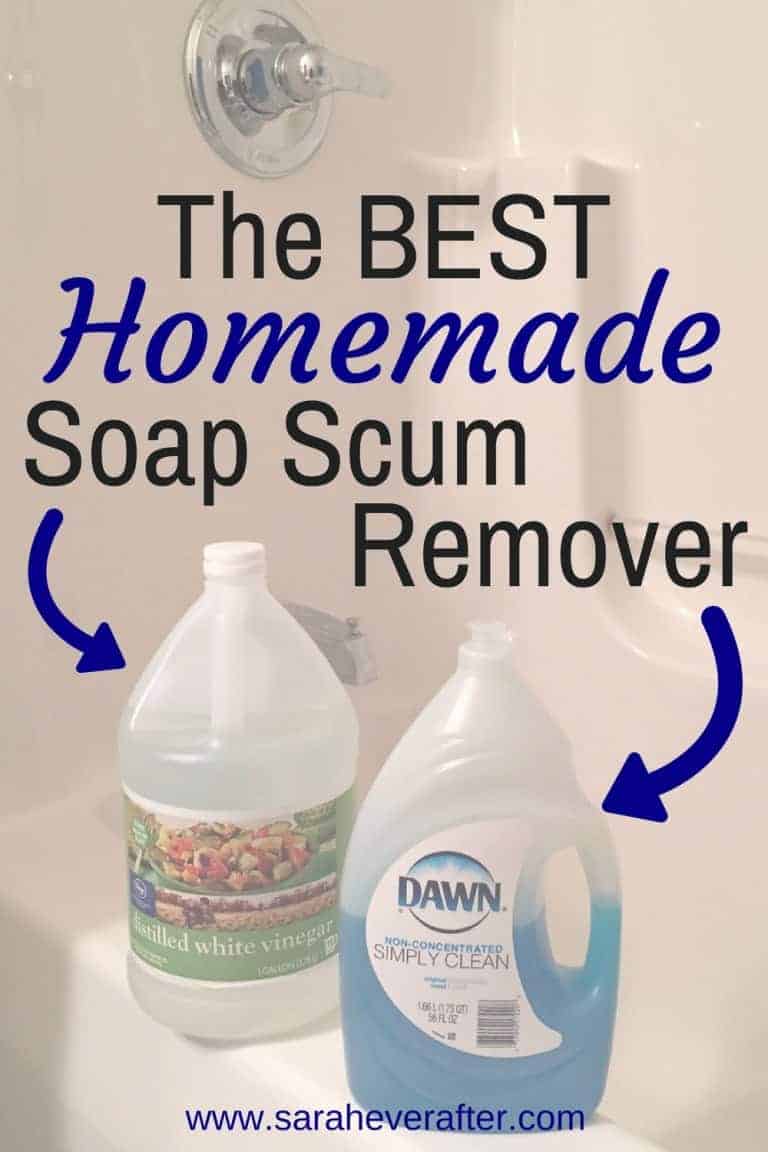





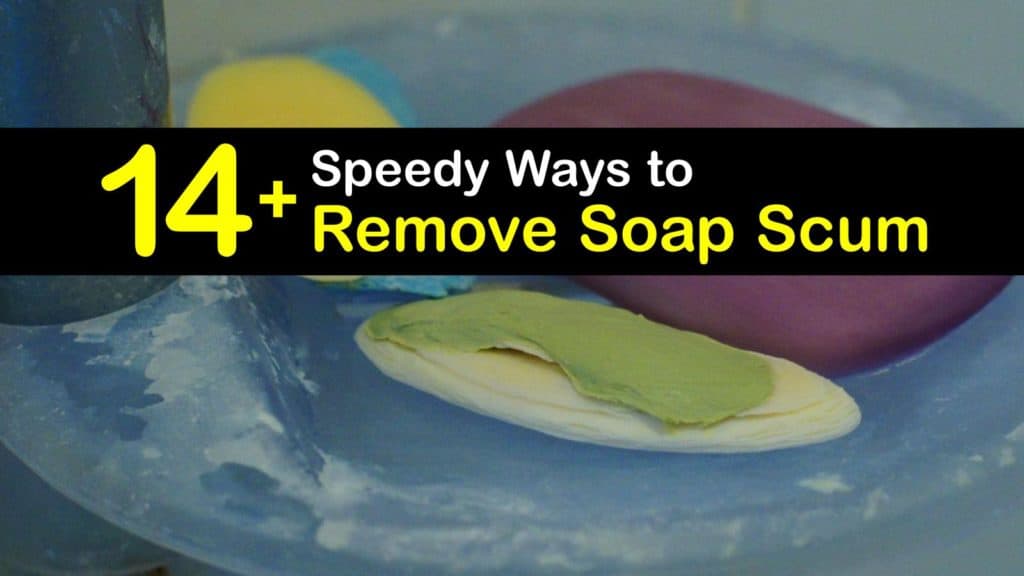


:max_bytes(150000):strip_icc()/how-to-remove-soap-scum-4137657-04-42d6ecd324764cffac1c24f9c849b828.jpg)




